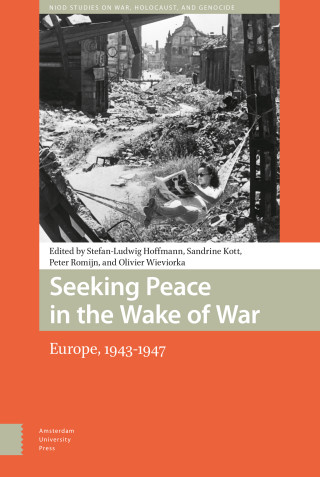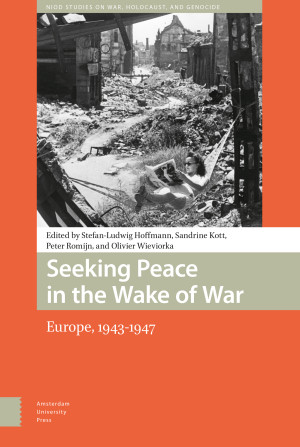The Editors
Introduction: Seeking Peace in the Wake of War. Europe 1943-1947
Section 1: In the Wake of War
Marcin Zaremba
The 'War Syndrome': World War II and Polish Society
Stefan Ludwig Hoffmann
Germans into Allies. Writing a Diary in 1945
Olivier Wieviorka, Gabriella Gribaudi, Julie le Gac
Two Paths to the Same End? The Challenges of the Liberation in France and Italy
Peter Romijn
'Liberators and Patriots': Military Interim Rule and the Politics of Transition in the Netherlands, 1944-1945
Section 2: Reordering communities
Juliette Denis
The Latvian Orphans Released from the Siberian Special Settlements (1946-1947): The Story of an Unusual Rescue in the Post-War USSR
Matej Spurny
Migration and Cleansing: Building a New Society in the Czech Borderlands after 1945
Audrey Kichelewski
To Stay or to Go? Reconfigurations of Jewish Life in Post-War Poland, 1944-1947
Masha Cerovic
Fighters Like No Others: The Soviet Partisans in the Wake of War
Section 3: Organizing the Peace
Sabine Dullin
How the Soviet Empire Relied on Diversity: Territorial Expansion and National Borders at the End of World War II in Ruthenia
Dirk Luyten
Social Security and the end of the Second World War in France, the Netherlands and Belgium: Social Peace, Organizational Power and the State
Polymeris Voglis
The Politics of Reconstruction: Foreign Aid and State Authority in Greece, 1945-1947
Sandrine Kott
Organizing World Peace: The ILO from the Second World War to the Cold War
Philip Nord
Conclusion

